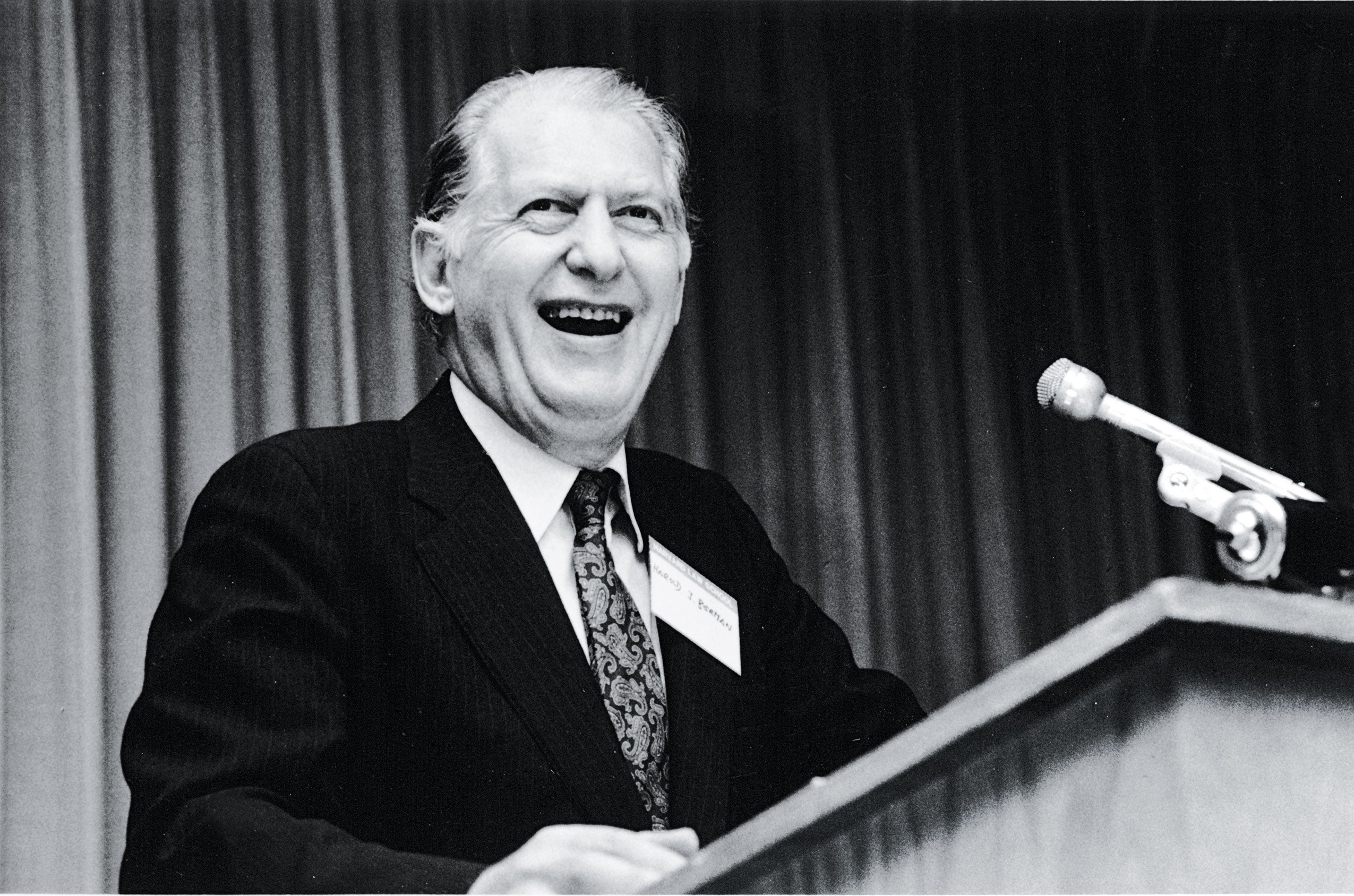A Scholar of Great Social Account
Professor Emeritus Harold J. Berman, an expert on comparative, international and Russian law as well as legal history and philosophy and the intersection of law and religion, died Nov. 13. He was 89.
Known for his energetic and outgoing personality, Berman recently celebrated his 60th anniversary as a law professor. He joined the Harvard Law School faculty in 1949 and held the Story Professorship of Law and later the Ames Professorship of Law. A prolific scholar, Berman wrote 25 books and more than 400 scholarly articles, including his magnum opus, “Law and Revolution: The Formation of the Western Legal Tradition.”
“Harold was a scholar of boundless and lofty ambition,” said HLS Professor Emeritus Henry Steiner ’55. “His projects reached deeply not only into comparative analysis and history, but also religion and jurisprudence. This is a record that any distinguished scholar would take pride in.”
Born in 1918 in Hartford, Conn., Berman received a bachelor’s from Dartmouth College in 1938 and a master’s in history from Yale University in 1942. After a year at Yale Law School, he was drafted by the Army and served as a cryptographer in Europe, earning a Bronze Star. He returned to New Haven and finished his degree in 1947.
Berman’s interest in the Soviet legal system began during his law school years, when he studied Russian and taught himself Soviet law. He argued his first case in Moscow in 1958, representing the estate of Arthur Conan Doyle, creator of Sherlock Holmes. Seeking to obtain royalties from the Soviet state on the millions of Conan Doyle books sold in the Soviet Union, Berman won the case in a Moscow city court. He later lost on appeal to a higher Russian Federation court.
Berman was a frequent visitor to Russia as a guest scholar and lecturer. As a result of his firsthand knowledge of the Soviet Union—rare for an American in the Cold War era—he became a leading consultant to Russian officials in the mid-1980s during glasnost and perestroika.
HLS Professor Emeritus Detlev Vagts ’51 was part of a group of academics Berman brought together to teach what they referred to as “capitalist law” in the Soviet Union during that time. Vagts recalled the challenges of their task:
“The young Muscovites had been trained to think of the act of two persons getting together to buy goods low and sell them high as a conspiracy to profiteer—which would get you five years of re-education in Siberia. Now they had to adjust to the idea that it was a legitimate partnership,” he said. “The first Russian law on corporations was drafted by lawyers who could not bear to use the term ‘capital’ for the account in the lower right corner of the balance sheet; they called it ‘the social account’ instead.”
In 1985, faced with the prospect of mandatory retirement, Berman left HLS for Emory Law School. At Emory, he held the Robert W. Woodruff Professorship of Law—the highest honor Emory bestows on a faculty member—for more than 20 years. He was the principal founder of the American Law Center in Moscow, a joint venture of Emory and the Law Academy of the Russian Ministry of Justice. He was also co-chairman of Emory’s World Law Institute, an organization that sponsors educational programs around the world.
Reflecting another of his long-term interests, Berman helped to develop Emory’s Center for the Study of Law and Religion. In 2003, he published “Law and Revolution, II: The Impact of the Protestant Reformations on the Western Legal Tradition.”
